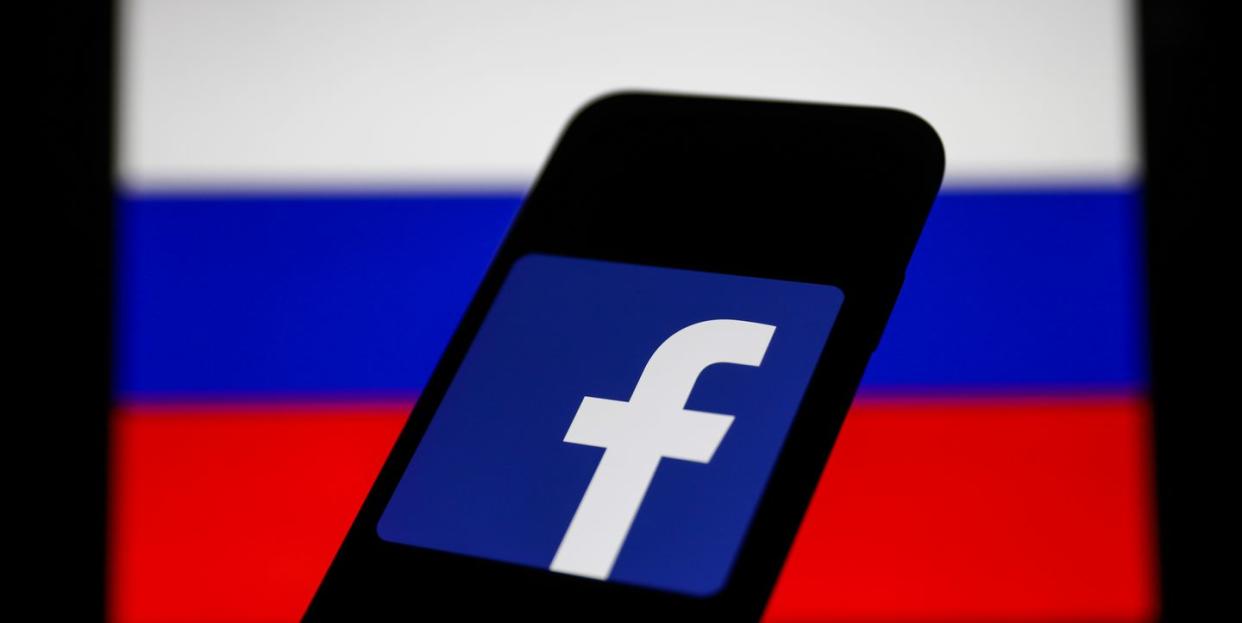Russia Just Blocked Facebook. Here’s What Citizens Can Do About It

Russia’s federal communications agency blocked access to Facebook on Friday.
It has also tightly restricted tens of millions of users from using Twitter.
Experts see the move as an act of Russian censorship, while the Kremlin accuses the social platforms, themselves, of censoring Russian media.
Within Russia’s borders, citizens can no longer log onto Facebook, and access to Twitter is dwindling.
On Friday, Roskomnadzor—Russia’s federal regulator for monitoring, controlling, and censoring mass media—blocked access to Facebook amid the country’s invasion of Ukraine as part of a bid to control the narrative about it. Notably, Russian media outlets must refer to the ongoing conflict as a “special military operation,” and not a war, according to a report from Qatari news source Al Jazeera.
💻 Tech can be tricky. We’ll be your support.
In a statement on Friday, Roskomnadzor claimed that it found 26 “cases of discrimination against Russian media and information resources by Facebook” since October 2020.
Facebook, now owned by the parent company Meta, refused to comply with a Russian order on February 25 to stop fact-checking and labeling content that state-owned outlets like Sputnik and Russia Today posted on the social media platform. At that time, Russia partially restricted access to Facebook, making Friday’s full blackout an escalation of earlier attempts.
“Soon, millions of ordinary Russians will find themselves cut off from reliable information, deprived of their everyday ways of connecting with family and friends and silenced from speaking out,” Meta’s vice president of global affairs, Nick Clegg, wrote in a statement posted to Twitter on Friday. “We will continue to do everything we can to restore our services so they remain available to people to safely and securely express themselves and organize for action.”
During a Friday press briefing, White House Press Secretary Jen Psaki noted that the move to shut down Facebook access is part of a “pattern” of Russia cutting its citizens off from the flow of information about the war in Ukraine.
Russia’s top social network, Vkontakte (VK) rivals Facebook in Russia and Eastern Europe; it’s even known as the Russian Facebook for its similar layout. VK sees an average of 50.2 million visitors per month—double the audience of Russian Facebook users. Facebook is Russia’s fourth-most used social network, according to Yandex, Russia’s version of Google. The second-most used social platform is Odnoklassniki, followed by Mail.ru.
Meanwhile, Twitter is the sixth-most used social media website in Russia, per Yandex, clocking in about 11.8 million unique visitors per month. On February 26, Twitter support wrote in a tweet that the website “is being restricted for some people in Russia,” noting that the company is working to keep its service safe and accessible.
Still, there are workarounds that Russia citizens can use, like downloading a virtual private network, or VPN. Instead of connecting directly to the internet at large, you connect to your VPN through your internet service provider, and and then your VPN connects to the rest of the web. You get two main benefits from using a VPN. First, by using a server hosted by your VPN, you can pretend to be in a different country. Second, and perhaps more importantly, your VPN provider encrypts all of the traffic going to and from your computer, so it’s much more difficult for someone else to tap into your communications or see your browsing history.
In a March 4 post, the Electronic Frontier Foundation, a San Francisco, California-based digital rights nonprofit, offers some more practical advice for Russians experiencing suppressed online access. First, it suggests “prioritizing safe and secure communications” that support end-to-end encryption, like Signal or WhatsApp. But if you’re concerned about linking your identity to a phone number, you can use an end-to-end encrypted chat service that doesn’t require a phone number, like Wire or Threema.
It’s also a good idea to secure your accounts with two-factor authentication, and turn on disappearing messages in case government authorities seize your device.
You Might Also Like

